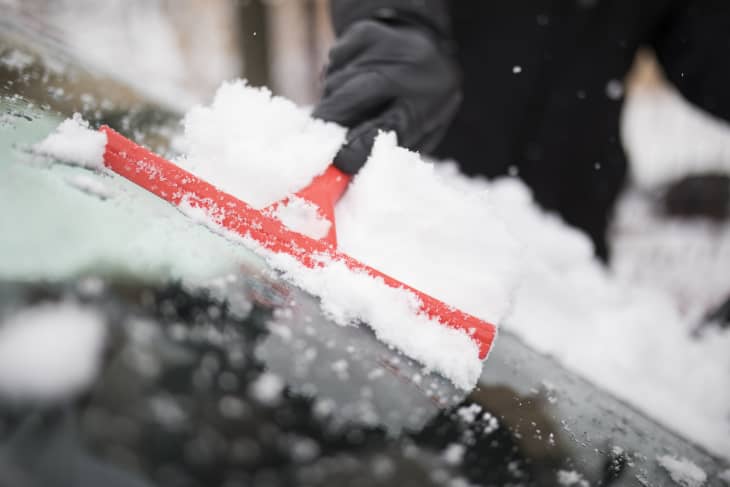The Best Way to Get Ice Off Your Windshield, According to Car Experts

The chilly winter months can create lots of extra work around the home — and on your vehicle. If you live in a colder climate, you’re probably all too familiar with the laborious process of clearing snow from your car before driving. You’ve probably also spent more time than you’d like chipping away at rock-solid ice on your windshield.
If you’ve ever wondered about the best way to get ice off your windshield, we’ve got you covered. Below, car experts sound off on the supplies you need and the steps to take for getting this tough-but-necessary winter chore done.
How to get ice off a windshield
The very first step is to actually prevent ice from covering your windshield in the first place. Jennifer Myers, director of marketing for Kunes Auto & RV Group, recommends putting a windshield cover on your vehicle every night.
“For the time it takes to do this, you’ll get back tenfold the next morning when all you have to do is remove the cover,” she says. If you don’t have a cover, park facing east and let the sun help do the work. Remote starters, which can be installed by car dealerships, also save time because they start thawing before you go outside.
If you’re in a pinch, having the right supplies on hand can go a long way in clearing off your car’s windshield. Here are the surprisingly simple expert-recommended steps to follow next time it’s icy outside.
Step 1: Turn on your car’s defrost setting
Should you forget or be hit with a surprise frost, Myers says the safest way to de-ice your windshield is using your car’s defrost settings. “This is when the remote start button on your keys will come in handy,” she says.
Step 2: Apply de-icer
While your car heats up, spray a de-icing product on the frozen windshield. These products can help make scraping easier by breaking down thick patches of ice, says Joe Giranda, director of sales and marketing for CFR Classic, an international car relocation company.
Step 3: Scrape the ice
Once the heavier ice areas begin to dissolve, use an ice scraper and carefully remove any remaining pieces of snow or ice from the glass surface. “Be careful not to apply too much pressure when scraping as this could potentially damage the glass,” Giranda says.
Step 4: Wipe the glass
If needed, Giranda suggests wiping away excess moisture with a cloth before driving away. Always be sure you can see clearly before hitting the road.
Keep in mind that these materials should only be used on your windshield and not on other parts of the car, such as mirrors or body panels. While products can be effective at melting ice on contact, Myers says these substances can be corrosive and damage your paint over time.